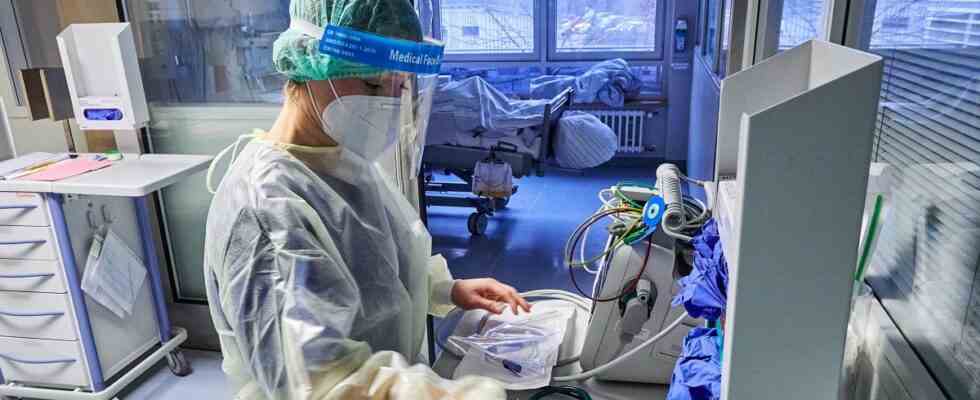There is a shortage of nursing staff in many German clinics. The federal government now wants to change that: the Ministry of Health is planning new legal requirements, according to reports from Berlin government circles on Thursday. In the future, hospitals will be obliged to employ enough nurses to ensure good quality care.
Apparently, Federal Minister of Health Karl Lauterbach (SPD) is planning a new tool for personnel assessment, which is to be introduced in three stages. From 2025 onwards, sanctions can be imposed on clinics that do not comply with the requirements.
The nursing shortage is currently attracting public attention, mainly because of the situation in North Rhine-Westphalia. The employees of six university clinics there have been on strike for ten weeks to draw attention to their poor working conditions: they argue that the constant workload means that patients are not being properly cared for. The medical director of the University Clinic Essen, Jochen A. Werner, told the German Press Agency that the care was “massively” impaired. The shortage of staff is exacerbated by the strike measures and by corona-related absences. There are sometimes “acutely threatening situations”.
In order to improve the situation throughout Germany, according to the plans of the federal government, patients are to be divided into eight different service levels in the future. For each of these levels, the time required for maintenance should be specified in minutes. Based on these values per patient, there is a total need for nursing staff, which the clinics then have to cover: The prescribed and the actual staffing should be recorded and any difference made visible. It is expected that the care time per patient will increase by around 8.1 percent as a result of the regulation.
Defaulting hospitals must reckon with penalties
Lauterbach’s cornerstones are now going to the parliamentary groups for consultation, with the first trial phase in January 2023, the reform should come into force. Initially, only a selection of clinics would be involved in order to check the law for its practicability and to be able to adapt it if necessary. From 2024 onwards, the staff assessment tool should then be mandatory for all hospitals – unless other agreements apply there that ensure the relief of nursing staff, for example through corresponding collective agreements.
Clinics that in 2025 neither use the statutory model for staffing nor have a corresponding collective agreement must expect sanctions. In government circles it is expected that many hospitals will soon conclude collective bargaining agreements to improve working conditions in care and to avoid sanctions. It was not immediately clear what punitive measures could be taken against defaulting clinics.
It is also still unclear how the clinics are to find enough specialists to fill the given positions. Even before the Corona crisis, there were too few nurses, and others have turned their backs on the profession during the course of the pandemic, which has exacerbated the state of emergency. Because of the tense personnel situation, many federal states even refrain from sanctioning nursing staff who are not vaccinated against Corona – although this has been required by law for medical staff since mid-March.

